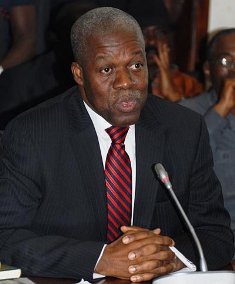
Vice President Kwesi Amissah-Arthur has announced that the development of local content and participation would underpin all major economic policies of the government and reforms to ensure a better balance in resource allocation.
“This is necessary for long-term sustainability and social cohesion,” he said, in Accra on Monday. Addressing the Standard Chartered Africa Summit 2013, the Vice President registered the commitment of the Government of Ghana to promote consistent local content agenda as a platform to ensure the emergence of a strong, vibrant and internationally competitive domestic private sector.
The summit, which is bringing bankers, economists, representatives from the World Bank and the International Monetary Fund, will look at economic prospects and challenges in Ghana and Africa within the global context. Vice President Amissah-Arthur spoke on the topic “Making Ghana a Preferred Investment Destination.”
He said the Government would continue to reach out to local investors to encourage the mobilization of domestic resources to ensure that Ghanaian owned businesses were put on a stronger footing to meet the requirements of a growing economy and to be globally competitive.
“It is our aim that local participation becomes a major pillar and that the growing army of young educated persons, find appropriate venues for their energies,” the Vice President said. He welcomed foreign direct investment to take advantage of opportunities created by the Government and to facilitate knowledge and technology transfer.
The Vice President, former Governor of the Bank of Ghana, who would have seen his last day guaranteed four-year term had he been in office as Governor, spoke of reforms that had taken place in the last decade and said they had allowed significant growth.
Among the reforms are the creation of Collateral Registry widen their scope of products on offer due to increase security, dependability and enforceability of registered collateral; the continuing of the Central Bank to license micro financial institutions across the country to the large unbanked population; and Pension Fund reforms with the aim of increasing the pool of available capital, especially for long term investment.
Vice President Amissah-Arthur noted that energy and infrastructure played major roles to reduce the cost of doing business, and said the Government continued to focus on energy as an important engine of growth. “Energy investments will not only meet Ghana’s demands but could potentially establish Ghana as the foremost energy supplier in the region.
The reform of the energy tariffs is crucial to attracting the interest of private sector investors to the sector,” the Vice President said.
He announced that there were plans underway to upgrade major highways, bridges and interchanges to facilitate the movement of people and goods across the country, and “these also will require attracting private sector investors in public private partnership”.